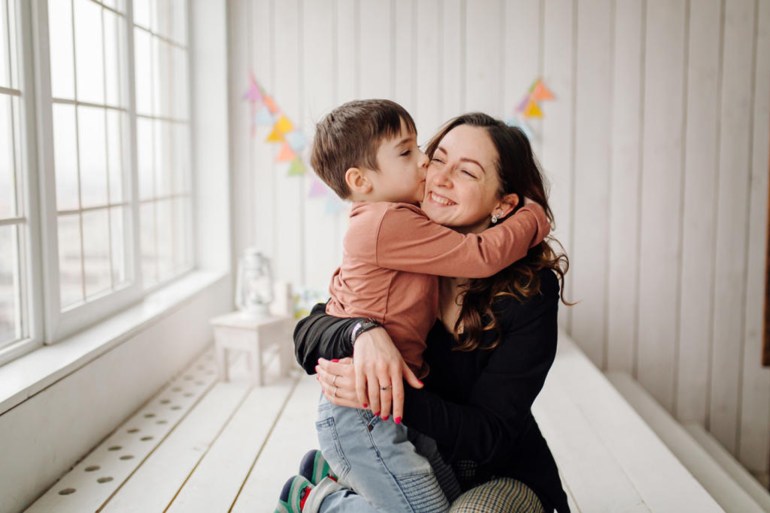Is your child driving you crazy because he moves around the house like a raging bull and ignores you when you tell him to calm down and when it's time to stop playing or finish homework?
Do you feel out of control and in dire need of learning self-control?
The importance of self-control
According to the Parentingscience website, self-control has been defined in many ways, such as willpower, self-discipline, or conscience, but most importantly, self-control is related to the ability to regulate oneself.
Young children lack self-control compared to older children, but there are a lot of individual differences as well. Some children have a real hard time regulating themselves.
Young children with poor self-regulation skills tend to make less academic progress and are more likely to experience anxiety, depression and aggressive behavior problems.
In the long run, children with poor self-control are more at risk of poor health outcomes, such as obesity and substance abuse, and are less likely to become wealthy.
Parents should know that children with poor self-control have hot brain biases (social media)
Where does self-control come from?
To understand our children's self-control, we need to start with an understanding of where the self-control in our brains comes from.
In her article on Psychologytoday, Danielle M. Dick says that the reason some children have less self-control than others is because of the genes they are born with.
This 3 billion base pair sequence they have inherited contains thousands of genes that influence the way our children's brains are wired.
This is what makes each of our children unique from the beginning of life.
Some minds are simply more willing to pay attention to what is now and not so good at thinking about the consequences that come in the future.
Self-control is related to two main areas of the brain.
The first is the limbic system, called the “hot” brain. It is located deep in the brain and is the most basic, primitive part of our brains. It is emotional, reflexive and unconscious, tuned to a rapid response to “go.”
This part is fully functional at birth, which is why babies cry when hungry or in pain, and this is also why young babies have poor self-control. They are like small engines without brakes.
The brakes on restraint come from a second, more complex area of the brain, the prefrontal cortex.
The prefrontal cortex develops more slowly and is not fully completed until the mid-twenties.
This "cold" part of the brain is involved in making more complex decisions.
Our children's natural ability to self-regulate is related to how active their "hot" brains are compared to their "cold" brains.
All children show increased self-control as they age and the prefrontal cortex develops, but the extent to which children develop self-control is a product of their unique brain wiring.
Young children lack self-control compared to older children (pixels)
frustrated parents
Parents need to know that children with poor self-control have hot brain biases, meaning that their minds focus more on the “here” and the “now.”
This means that when they fail to show up when you ask them or stop running when you ask them, they are not trying to challenge you or ignore you. Rather, their hot brains tend to focus on the present, and their cold brains are not very good at thinking about the consequences they will face later on.
Part of the reason parents are frustrated is because they believe their children understand and are able to behave well, but choose not to do so, which is not true.
The fact that your child knows the rule well does not mean that his brain is able to follow it, their hot brains are working at full capacity, but their cold brains have a long way to go, and this makes it difficult to control the current situation.
Mastering behavior automatically takes time and even as your child builds self-control he will still stumble from time to time (pixels)
self-control education strategy
One way to overcome this gap is “When-then plans.” This simple “when x happens and you have to do y” plan helps eliminate the need for a cold mind to guide our children to a better course of action. By eliminating the need to think completely.
“When the alarm goes off, I will get up from the secret.” “When my mother asks me to put my shoes on, I will put my shoes on.”
Here you communicate the situation that results in control problems in children through a pre-planned response, and each time when this happens your child will respond with that.
They don't need to think here and no decisions are allowed at the moment, so when "x" happens, I'll do "y".
Over time, it becomes a habit and does not require stressful control anymore.
To get started with this type of plan, you need to practice with your child.
Have them pretend they are in the "when" situation and practice the immediate response, then reward and repeat.
You are trying to automate the behavior, and you do so by practicing it over and over.
And the more your child exercises, the better.
It automatically takes time to master a behavior, and even as your child builds self-control he will still stumble from time to time.
Here, take a deep breath and remind yourself that their brains are still under construction.
Unfortunately, lecturing, yelling, or punishing them for failing to act in ways beyond their ability will not only make their brains grow faster, but rather make them feel worse about themselves.
Keep pushing your child to develop self-control, even when they're driving you crazy.

